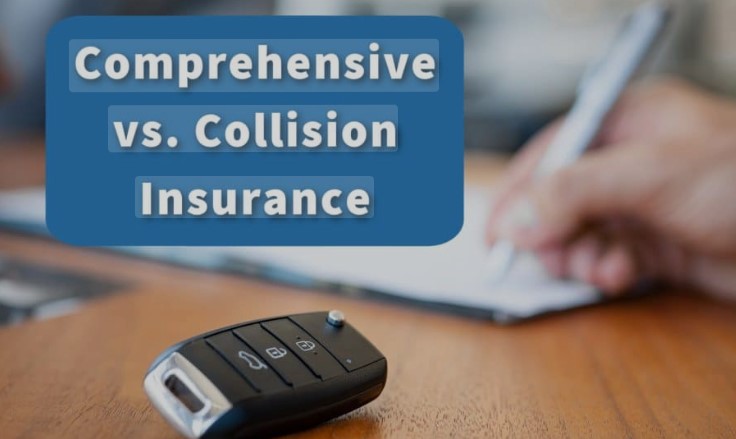Comprehensive vs. Collision Insurance: What Do You Really Need?
Introduction
When purchasing car insurance, one of the most important decisions is choosing between comprehensive and collision coverage. While both types of insurance provide financial protection, they cover different types of damage and may be more beneficial depending on your individual circumstances. In this guide, we will explore the differences between comprehensive and collision insurance, helping you determine which coverage best suits your needs.
What is Comprehensive Insurance?
Comprehensive insurance covers damages to your vehicle that are not caused by a collision. This type of coverage is often referred to as “other than collision” insurance.
Coverage Includes:
• Natural disasters (hurricanes, tornadoes, floods, earthquakes)
• Fire damage
• Theft and vandalism
• Damage from falling objects (e.g., tree branches, hail)
• Animal collisions (e.g., hitting a deer)
• Civil disturbances (e.g., riots, protests causing damage to your car)
Pros:
• Protects against non-collision-related damage
• Covers unpredictable events like weather and theft
• Required by lenders for leased or financed cars
Cons:
• Does not cover collision-related damage
• Higher premiums than liability-only coverage
• Deductibles apply before the insurance pays out
What is Collision Insurance?
Collision insurance covers damages to your vehicle resulting from an accident involving another car or an object, regardless of fault.
Coverage Includes:
• Collisions with other vehicles
• Single-car accidents (e.g., hitting a tree, pole, or guardrail)
• Rollovers
• Damage from potholes
Pros:
• Covers repair or replacement costs for your vehicle after an accident
• Provides financial security even if you’re at fault
• Required by lenders for leased or financed cars
Cons:
• Does not cover non-collision-related damage
• Higher premiums than liability-only coverage
• Deductibles apply before the insurance pays out
Key Differences Between Comprehensive and Collision Insurance
Feature Comprehensive Insurance Collision Insurance
Type of Damage Covered Non-collision events (weather, theft, vandalism) Collision-related damage
Required by Lenders Yes (for financed or leased cars) Yes (for financed or leased cars)
Covers Theft Yes No
Covers Hitting an Animal Yes No
Covers Accidents with Other Cars No Yes
Covers Weather Damage Yes No
Do You Need Comprehensive, Collision, or Both?
The decision to purchase comprehensive, collision, or both types of insurance depends on several factors, including the value of your car, your financial situation, and your risk tolerance.
When to Choose Comprehensive Insurance:
• You live in an area prone to extreme weather, such as hurricanes or hailstorms.
• Your car is new or expensive to repair.
• You park in high-crime areas where theft or vandalism is a concern.
• You want protection from non-collision damages, like hitting an animal or falling objects.
When to Choose Collision Insurance:
• You drive frequently in high-traffic areas, increasing the likelihood of an accident.
• You cannot afford to pay for major repairs or replacement out of pocket.
• You want coverage regardless of fault in an accident.
• You have a leased or financed vehicle, which typically requires collision insurance.
When You May Not Need Either:
• Your car is old and has a low market value.
• The cost of coverage exceeds the potential payout for your vehicle.
• You can afford to replace or repair your car without insurance assistance.
Cost Considerations
Both comprehensive and collision insurance add to your overall premium costs. The cost of these coverages varies depending on factors like:
• The make and model of your vehicle
• Your driving history
• Your location
• Your chosen deductible (higher deductibles lead to lower premiums)
To determine if comprehensive or collision insurance is worth the cost, calculate the annual cost of coverage and compare it to your car’s actual cash value (ACV). If the total cost over a few years exceeds your vehicle’s worth, you may consider dropping coverage.
How to Lower Your Premiums
If you decide to keep both comprehensive and collision insurance but want to reduce costs, consider these strategies:
1. Increase Your Deductible – Opting for a higher deductible reduces your monthly premiums.
2. Bundle Policies – Many insurers offer discounts if you combine auto and home insurance.
3. Maintain a Clean Driving Record – Avoid accidents and traffic violations to qualify for lower rates.
4. Install Safety Features – Anti-theft devices and safety features may earn you discounts.
5. Shop Around – Compare quotes from multiple insurers to find the best rate.
Conclusion
Comprehensive and collision insurance serve different but equally valuable purposes. Comprehensive insurance protects against non-collision-related damage such as theft and natural disasters, while collision insurance covers damages from accidents involving other vehicles or objects. The right choice depends on your car’s value, financial situation, and personal risk tolerance. Before making a decision, carefully assess your needs and compare policy costs to ensure you’re getting the best protection for your budget.



